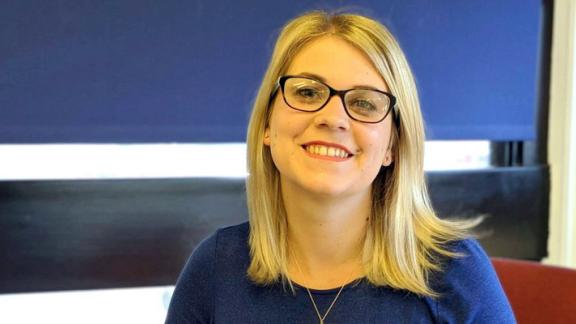HSJ Value Awards: The part played by Healthwatch Kirklees in finalists Calderdale and Huddersfield FT’s project

Helen Hunter is chief executive of local Healthwatch in Calderdale and Kirklees. The charity worked in partnership with Calderdale and Huddersfield NHS Foundation Trust as part of the trust’s redesign of outpatient services, work that was nominated for an HSJ award in November 2019. In this blog Helen describes how Healthwatch helped the trust develop a compelling narrative for changing outpatient services.
I wrote this blog while on a Grand Central train, sailing through an increasingly wintry-looking Yorkshire on the way back from the HSJ awards last night. We didn’t win, but I was proud to accompany partners from Calderdale and Huddersfield NHS Foundation Trust's (CHFT) transformation project, Project 20:20 Transforming Outpatient Services.
I was quite surprised (and obviously flattered) to be asked to come along on this adventure, however the project board credits Healthwatch Kirklees’ engagement work with kick starting this project and giving clinical leaders the narrative they needed to transform services.
Frustrated by hearing the ongoing issues around the cost of hospital parking and that people have been attending the hospital when they’ve no idea what the appointment is about, and that travel and transport to get to hospital can be a significant barrier, in 2018 our Healthwatch initiated getting service users’ views on different ways we could deliver planned outpatient appointments.
How would people feel about outpatient clinics being delivered by telephone or Skype?
If transformation in outpatients could reduce the cost and life impact on families by reducing the need for people to attend clinics, would this be positively received?
At the time, we were trialling Facebook as a way of quickly testing what people felt about changes to our healthcare system. Although Facebook is a flawed mechanism to use, with a strong demographic bias towards women and a reduced response from under 30s, it’s a quick and inexpensive way of testing what some people might think of an idea.
Across three weeks, we received over 500 responses to our survey. Overwhelmingly, the feedback indicated that people were open to different ways of accessing outpatient care. There was still a clear indication that people wanted to feel like they had some personal contact with an appropriate clinician, either by Skype, telephone call or in person in a community setting, particularly if they were going to need ongoing treatment, or might have questions about test results. Further, working people and carers were keen not to have to take time off from work or caring responsibilities if the information could be delivered in a different way, and many people felt that there was some information that could be sent to them in a text or email, such as ‘all clear’ test results.
What this consultative work was get feedback and harness it in a constructive way - we asked the public some questions about the change they want to see in order to address the problems they face and gave the results to CHFT.
When we took the feedback to CHFT they had a real appetite for listening to what service users had to say. We helped them to create an initial narrative and case for change that they could use to influence executives, clinicians and patients. The short piece of work we completed went to executive board, non-executive directors, governors and staff. It was quoted in briefings and business cases and provided a legitimacy to the wider proposals that made the change process easier. This was not about cutting 30 per cent of appointments, this is about responding to what people wanted; a more modern and more accessible NHS that sees patients as individuals with lives and responsibilities.
In my view, CHFT has embraced the added value of understanding what everyday people think. It can be risky to pose a question about change to the public because people are fiercely defensive of the NHS and can be quite scared about what change will mean. However, knowing what people might be fearful of, what might improve their experience and what they are willing to try makes transforming care provision more real, more effective and more sustainable.
We recognise that our contribution to this transformation work has been limited. The real change is delivered by passionate clinicians and trust staff in each outpatient clinic, and by the patients and carers who were involved in the redesign of over 40 separate outpatient clinics. But we also recognise the real legitimacy that comes from building clinical change botton up, from a good understanding of what people actually want from health and care services.
Helen Hunter is chief executive of Healthwatch in Calderdale and Kirklees. You can follow her on Twitter @helenwhwc



